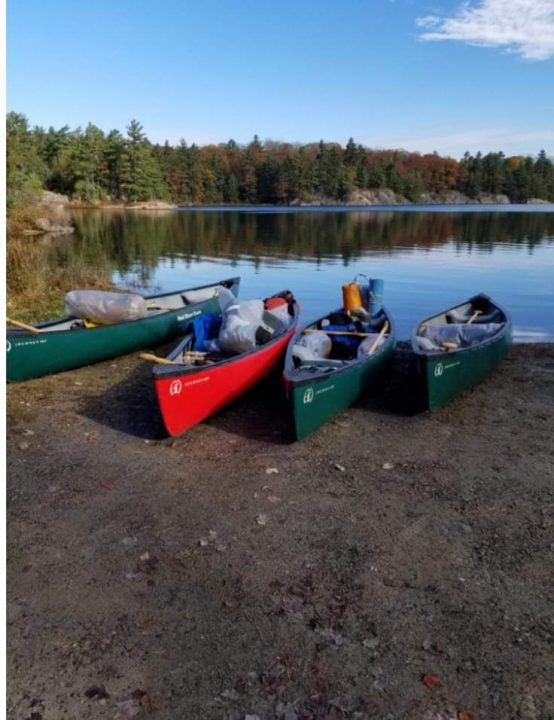About Us

About us
Gwekwaadziwin Miikan Youth Mental Health and Addictions Program is an innovative residential land-based treatment program created specifically to the needs of Indigenous youth and young adults ages 19+ investing in the wellness of First Nations communities. Gwekwaadziwin is located on Manitoulin Island, and is a unique key component of six First Nations and collaboration with local and provincial resources. It supports the youth and young adults on their path of recovery, from stabilization, through treatment, aftercare, and transition back into their community. Weaving traditional culture with therapeutic best practices, education, life skills, and outdoor experiential learning, allows Gwekwaadziwin to offer a full spectrum of care for individuals.
Living the Right Way
“Gwekwaadziwin” is one of the Seven Grandfather Teachings, a set of Anishinabek teachings on human conduct towards others. When translated into English, it is referred to as “Honesty,” but in the Ojibwe language it means more than Honesty. Gwekwaadziwin means “Living the Right Way.” Our programs will provide a client-centered model of mental health and substance abuse treatment for Anishinabek youth and young adults. It aims to support a community of healthy youth and young adults working towards wellness, education, and economic prosperity for individuals, families, and communities from an Indigenous perspective.
Mission
To serve our youth and their families and guide them to ‘Living the Right Way’ by integrating the wisdom of our traditional knowledge keepers, providing a program from stabilization through reintegration into the community, and, addressing the individual needs of our participants.
Vision
Healthy and prosperous Anishinabe communities on Mnidoo Mnising with youth oriented to ‘Living the Right Way’. Sharing knowledge and best practices so that Indigenous communities can become healthy and prosperous.
Investing in the wellness of First Nations communities
Gwekwaadziwin was created to address the epidemic of addictions and mental health issues facing many Indigenous communities. According to Statistics Canada, Canada’s Indigenous peoples overall mental health is poorer than non-aboriginal peoples. Gwekwaadziwin was created to fill a number of access gaps to mental health service that Indigenous youth and young adults experience in Northern Ontario.
A connection to cultural identity and community are critical to recovery and success for Indigenous youth and young adults struggling with addictive behaviours and mental health challenges. Anishinabek teachings and traditions are central to our programs, and Elders are part of the treatment team. The Four Directions of the Medicine Wheel teach about the inseparability of the emotional, physical, intellectual, and spiritual aspects, and that each must be supported in an individual to achieve harmony. Our program is intentionally structured to promote balanced living, and to nurture emotional, physical, intellectual, and spiritual growth and meaningful, sustainable change for Indigenous youth and young adults.
The Seven Grandfathers Teaching
At Gwekwaadziwin, we focus on the Seven Grandfather Teachings – Wisdom, Love, Respect, Bravery, Honesty, Humility, and Truth – as our core themes for living. Our programs study each teaching in-depth and are supported to integrate these teachings into daily life.
Zaagidiwin
Love
Dbaadendiziwin
Humility
Debwewin
Truth
Gwekwaadziwin
Honesty
Mnaadendmowin
Respect
Aakedhewin
Bravery
Nbwaakaawin
Wisdom

Governance
Gwekwaadziwin has full support from Aundeck Omni Kaning, M’Chigeeng First Nation, Sheguiandah First Nation, Sheshegwaning First Nation, Whitefish River First Nation, Zhiibaahaasing First Nation. Gwekwaadziwin has also made connections with local Health Centres, Health Units, Family Health Teams, OPP & UCCMM Police, Child Welfare, as well as other social and community service providers.
Gwekwaadziwin is a unique partnership among the United Chiefs and Councils of Mnidoo Mnising (UCCMM) and Kenjgewin Teg Educational Institute (KTEI). UCCMM provides administration and support of the project, KTEI will provide the educational component.
Governance structure will be modeled on the principles of responsibility, accountability and transparency.
Meet Our Team
Sam Gilchrist
Executive Director
Anne-Marie Thibault
Clinical Director
Matt Maracle
Director of Operations
Stephanie Corbiere
Withdrawal Management Team Leader
Rachel Maracle
Training & Curriculum Specialist
Michael Aelick
Aftercare Team Leader
Jody Kennedy-McQuarrie
Enaadmaaget
Natalie Hastings
Culinary Specialist
Troy Thibault
Data Specialist
Candice Corbiere
Land Based Team Lead
Lisette Brunet
Land Based Counsellor
Scott Card
Training & Curriculum Specialist
Paul Stewart
Aftercare Support Worker
Danielle Bourgault
Admissions Assistant/LBC
Shamus O'Connor
Land Based Counsellor
Emma Campbell
Land Based Counsellor
Andy Aguonie
Traditional Knowledge Keeper
Elijah Sherk
Land Based Counselor
Faith Beaudin
Administrative Assistant
Chris Smith
Pandemic Support Worker
Mike Ramsdin
Generalist Support Worker
Dwayne Douglas
Land Based Counsellor
Angus Horne
Land Based Counsellor
Jessica Brugess
Land Based Counsellor
Chris Perelmutter
After Care Counsellor
Derek Assiniwe
Land Based Counsellor
Matthew Leitch
Land Based Counselor
Melanie McGregor
Finance Manager
Partners


